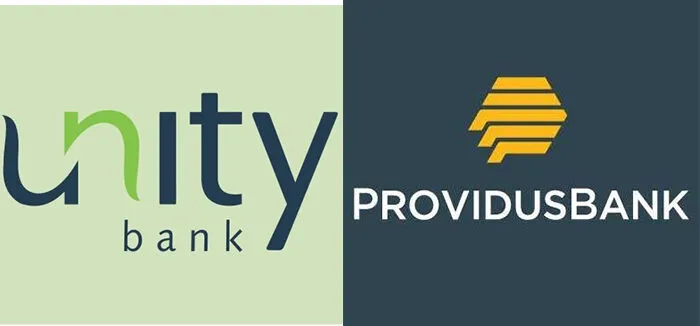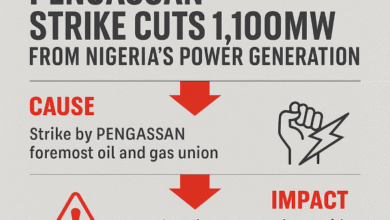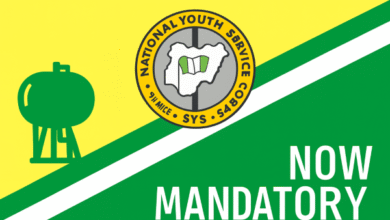Providus–Unity Bank Merger: A Turning Point for Nigerian Banking or a Replay of Old Lessons?

Introduction: When Weakness Meets Strength in Nigerian Banking
The Nigerian banking industry has entered yet another critical consolidation phase, with Providus Bank Limited and Unity Bank Plc setting the stage for a strategic merger. For many Nigerians, this development is more than a headline—it raises questions about service reliability, digital readiness, financial stability, and customer trust.
The backdrop is familiar. From the Soludo-led banking consolidation of 2004 that reduced Nigeria’s banks from 89 to 25 through mergers and acquisitions, to the turbulent rescues of Oceanic, Intercontinental, and Spring Banks in the post-2009 financial crisis, Nigerians have witnessed how mergers can either strengthen the sector or leave scars of lost savings and weakened institutions.
This time, however, the Providus–Unity deal is unfolding under a tighter Central Bank of Nigeria (CBN) supervision, within the larger recapitalisation push that has compelled banks to build stronger buffers. The critical question is whether this merger will transform customer experience and institutional resilience—or simply paper over Unity’s longstanding weaknesses.

Background: Shareholder Approval and Regulatory Backing
At an Extraordinary General Meeting (EGM) on September 26, Unity Bank shareholders overwhelmingly approved the merger with Providus Bank. With 293 shareholders representing 99.32% of shareholding voting in favour, only two opposed the Providus Unity Bank merger deal.
Shareholders were given two options:
- Cash compensation: ₦3.18 per share held in Unity Bank.
- Equity swap: 18 ordinary shares of Providus Bank for every 17 Unity Bank shares.
The merged entity will be christened Providus–Unity Bank (PUB), deliberately retaining the Unity brand element to maintain loyalty in northern Nigeria, where Unity Bank has historically enjoyed grassroots trust.
Notably, the Central Bank of Nigeria (CBN) endorsed the merger in August 2024, granting financial accommodation to stabilize Unity Bank’s obligations. This regulatory backstop underscores how important the merger is to Nigeria’s banking stability.
The Key Issues at Stake
- Unity Bank’s Fragile Position: For years, Unity Bank has struggled with weak capitalisation, outdated digital infrastructure, and inconsistent customer service. Many customers recount persistent ATM failures and inadequate branch expansion.
- Providus Bank’s Emerging Strength: Established in 2016, Providus has cultivated an image of modernity and digital-first service, appealing to SMEs, fintechs, and urban professionals. By absorbing Unity’s liabilities and network, it gains scale and retail access.
- Customer Expectations: Customers from both banks are vocal—demanding improved digital services, stronger customer care, and expansion of ATMs and branches. They fear a repeat of the Oceanic and Intercontinental saga, where shareholders were short-changed.
- CBN’s Supervisory Hand: With recapitalisation deadlines looming, the CBN sees this merger as a stress-relief valve, averting systemic risk while signaling its readiness to rescue weak players through strategic combinations.
Sector Analysis: What the Merger Means for Nigerian Banking
1. Retail Banking
Unity’s grassroots strength, particularly in northern Nigeria, is a strategic asset for Providus. If properly integrated, PUB can become a mid-tier retail powerhouse, leveraging Providus’ digital agility to service Unity’s largely rural and semi-urban customer base.
2. SME and Corporate Banking
Providus’ strong SME focus combined with Unity’s agricultural and microfinance exposure could create an innovative lending hub—bridging urban SMEs and rural agro-value chains. However, execution is critical. Poor risk management could saddle the new entity with bad loans.
3. Digital Banking
Providus’ fintech partnerships and digital onboarding platforms provide a leapfrog opportunity. Customers expect real-time improvements: working ATMs, seamless transfers, better mobile apps, and reduced downtime. The merger will be judged here first.
4. Investor Confidence
Shareholders now face a choice between immediate cash-out or long-term equity participation in PUB. Investor sentiment will depend on how quickly PUB demonstrates improved governance, profitability, and service delivery.
Economic Implications
- Banking Sector Stability: The merger relieves immediate pressure on Unity Bank, preventing a potential collapse that could have rattled Nigeria’s financial system and shaken depositor confidence.
- Employment Impact: While mergers often result in redundancies, PUB has pledged to preserve as many roles as possible while investing in retraining. Still, staff rationalisation is almost inevitable.
- Credit Availability: With CBN’s backing, PUB could unlock more lending to SMEs and retail customers, aligning with Nigeria’s goal of expanding financial inclusion.
- Regional Equity: By retaining Unity’s name, PUB signals sensitivity to Nigeria’s north–south balance, ensuring that consolidation does not alienate regional markets.
Investor Implications
- Shareholder Value: Unity shareholders who hold on may benefit from long-term appreciation if PUB leverages scale effectively.
- Institutional Investors: Pension funds and asset managers will be closely watching PUB’s governance and financial reporting.
- CBN’s Signal: By funding this merger, the CBN has signaled which banks are too critical to fail, shaping investor strategy across the sector.
Global Context: Banking Consolidation Lessons
Globally, banking consolidation has often created more competitive players—think JPMorgan’s merger history in the U.S. or Standard Bank’s acquisitions in Africa. For Nigeria, PUB will need to prove it can join the ranks of Zenith, GTCO, and Access as a resilient tier-one competitor.
BRANDECONOMY Takeaways for Decision-Makers
- For Policymakers: Banking mergers must be closely supervised to avoid customer disenfranchisement. Robust monitoring of service standards post-merger is essential.
- For Investors: PUB represents both risk and opportunity. Early execution failures could sink shareholder value; swift digital and governance reforms could deliver exponential growth.
- For Customers: Vigilance is key. Customers must monitor how PUB delivers on digital service, ATM functionality, and branch access.
- For the Banking Industry: PUB could set a precedent for more mergers as recapitalisation pressures mount. Competitors should prepare for a new wave of consolidation.











